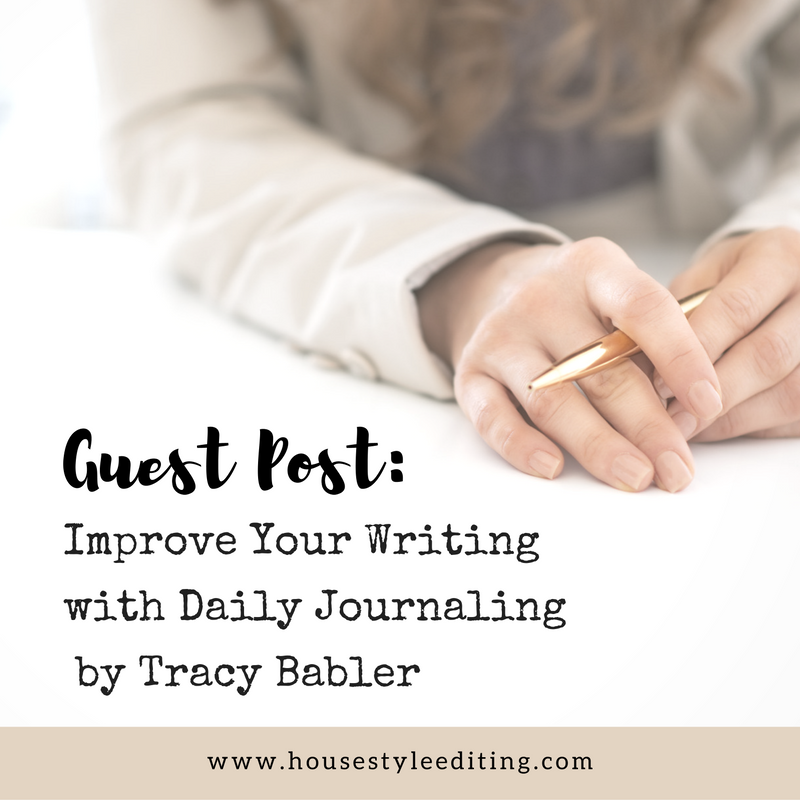
Your Journal is a Judgement-Free Zone
Most writers are familiar with Anne Lamott’s famous strategy of writing a Sh**ty First Draft. (Please excuse Anne’s language, it’s the only language that will do here.) From Lamott’s book Bird by Bird: Some Instructions on Writing and Life:
Perfectionism is the voice of the oppressor, the enemy of the people. It will keep you cramped and insane your whole life, and it is the main obstacle between you and a sh**ty first draft.
The struggle is real. Most writers waste valuable writing time being introspective rather than productive. What if people get mad? What if I don’t sound smart? WHAT IF I’M NOT ACTUALLY A GOOD WRITER?!
I am a professional writer and I still face down these fears every day. But my livelihood depends on me getting thoughts out of my head and onto the paper. Starting a judgment-free daily journaling practice is one way I’ve cured myself of this handwringing, increased my productivity and sparked more creativity in my life.
Here’s why:
- My journal doesn’t judge. I catalog my thoughts, feelings, emotions in my journal where no one else gets to see them. My journal is also great for capturing ideas—the good, the bad and the underdeveloped kernals taking up space in my brain and blocking me from acting. Once I set my ideas down in ink, I have permission to pursue them, forget them or come back to them when the time is right.
- My journal doesn’t have a backspace button. On my laptop, I often self-edit each sentence to “perfection” as I go. Meanwhile, my train of thought slowly pulls away from the station and my momentum goes with it. Self-editing is a great practice in the second and third draft stages, but it can kill a writer’s flow. Journaling forces me to write my stream of consciousness and get all my ideas out—no matter how disorganized.
- My journal captures patterns. Journaling every day provides space to record my reactions to the world around me. That’s valuable information for understanding what is standing between me and my writing goals. In looking back on the past few months, I found that a certain client consistently caused me undue stress. I also noticed several entries referencing a great idea that I let flounder. My journal provides a deep look inside my soul and frequently guides better decision-making in my writing life.
- My journal is flexible. As a grantwriter, I’m almost always on deadline. Some days I just don’t have time to journal the way I want to. On those days, I wake up, meditate, and immediately journal a list of all the things I’m worried about. Client deadlines, unpurchased birthday presents, unsubmitted school field trip forms, meetings I need to prepare for—these all go in my journal before I sit down at my desk. It’s amazing how this easy practice frees me to sit down and write instead of trying to do #allthethings at once.
- My journal gives back. Self-care is extremely important for stressed-out writers. This year, I started a strategy to counteract negative self-talk. Every time I think I’m failing at something, I open the back page of my journal and write down one piece of evidence that the opposite is true. And I mean cold, hard facts—I’m not trying to trick myself into feeling better. For example, if I’m questioning myself after receiving negative client feedback, I might write, “You have surpassed your revenue goals this year. Clients value you.” After several months of this practice, I have a log of all the positive things I’ve accomplished in my writing life and no record of any negativity.
Ready To Journal? Get a Journal!
Once you see writing improvements from your journaling habit, you’ll want to tell all your writerly friends. I’ll share with you the three journals I’m using now: for my business planning, I use Powersheets, for my daily brain dump, I use the Boss Mom Planner, and for my daily creative journaling, I just purchased the 100 Joyful Days journal.
If you’re a parent, don’t forget to share what you’ve learned with your kids, too. Journaling is just as wonderful for improving children’s writing habits as it is for ours. If you’re looking for a creative stocking stuffer for your little writers this year, hop on over to luandbeanread.com to check out our My Reading Adventures journal for the little ones in your life. There is no better gift than the space to think creatively!
 Tracy Babler is a freelance writer from Minneapolis, MN. She blogs about children’s books, children’s literacy and writing for children at luandbeanread.com. She is the creator of My Reading Adventures Journal.
Tracy Babler is a freelance writer from Minneapolis, MN. She blogs about children’s books, children’s literacy and writing for children at luandbeanread.com. She is the creator of My Reading Adventures Journal.
This is such a great article and reminder! Writing things down can seem more difficult than it should be, because we have a tendency to get in our own heads. I can’t wait to get your reading journal in the hands of my nephews.
Thank you, Yvonne! I was so pleased to feature Tracy and her new Reading Journal on the blog.